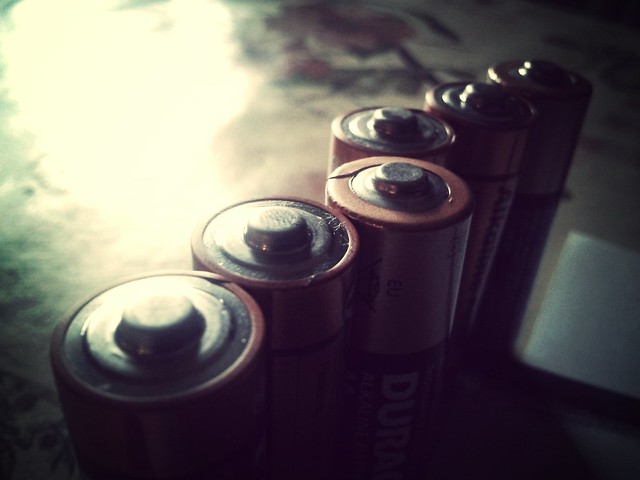How to store LiPo batteries
Jul 11, 2019 Pageview:1260
While you might be storing your general batteries on a drawer in the kitchen, when it comes to more advanced models, there are other many things you are going to have to consider. Seen as the fact that Lithium Polymer batteries are rather delicate when it comes to their charge, so, storing them at the right place, with the right voltage and at the right times even can get a little complicated. But don’t worry, that is what we are here for, here is the full guide on how to properly store a Lithium Polymer battery, and the debunking of some myths about storage that could severely damage your battery.
How to store LiPo batteries safely?
The first thing you need to know about storing Lithium Polymer batteries is that you should never (NEVER!) charge, discharge, use, or store a battery that is damaged or puffy, just dispose of it through the adequate protocols. Now that we have that clear, let’s talk about the storage of healthy batteries.
As you might know, if you have been using LiPo batteries for a while, you shouldn’t leave them on a full charge for a long time (but neither should you discharge them, it is complicated). The thing is, if you leave the battery fully charged for more time than it can handle, it will begin to gradually lose its capacity and have shorter life cycles. Not only this but the worst-case scenario, it will begin to puff. The best way to estimate the voltage at which the battery should be store is by noticing what voltage it was in when you first bought it. The thing is, since manufacturers are essentially storing thousands of LiPo batteries, they are keeping them at storing voltage because chances are they are not going to be used at least for a few months from then. If you don’t know or don’t remember the voltage of the battery when you first bought it, storing it at about 3.8-3.85 V per cell is pretty safe.
Besides the voltage, you should always be storing these batteries at room temperature, don’t keep them in a hot garage or in a freezing one. A cold battery could potentially have a less chemical reaction and therefore make its lifespan longer, however temperatures below 0°C can cause condensation inside the battery and therefore very dangerous consequences.
Where do you store your LiPo batteries?
When it comes to an electrical aspect of storing a LiPo battery, the answer is pretty straightforward. However, when talking about a physical place to store them in, that is when things get a little complicated. LiPo batteries as you might have already noticed contain high amounts of chemicals with high likeliness to react, that is why they are so powerful. Anyhow, this means they need to be handled with care, as much as possible indeed.
First of all, you should insulate the leads, you can do this by simply putting a rubber cap or electrical tape on all of them. Balance leads and main power leads should also be subjected to this procedure.
You also want to at least have them inside a LiPo storage bag, which is made from a fire-retardant material in case an accident was to occur. The bag obviously won’t completely stop the flames, however, it will, actually, give you more time to react and take measures against the fire. When choosing a location look for the following characteristics:
-Fireproof locations, for example, the concrete environment within your garage, another option is metal or glass boxes. Always away from carpets or things that might ignite easily. -As mentioned before, control temperature and make sure they are in a rather dry environment.
-Ammo boxes are actually a good choice to store them.
-You can also store the battery in a container and putting a bag of sand at the top. If an ignition were to happen, then the flames would cause a hole in the bag, which would release sand and turn off the fire.
-Make sure that you are storing it close to a fire extinguisher.
Lipo battery storage myth discussion
There are two main myths that revolve around storing LiPo batteries that are rather false and can significantly damage your batteries.
1.Store them in the freezer
No. Just don’t. As per discussed above, extreme temperatures are very likely to damage the chemical integrity of your battery. It is not that it is bad for it, but the extreme cold can be dangerous, especially if you are keeping it there for an extended period of time. As a battery is a collection of chemicals that are storing energy, upsetting said chemicals are potentially very dangerous. And yes, extreme temperatures upset them.
On the other hand, one could argue cold allows for less chemical reactions and it is, therefore, better than room temperature, which is partially true. However, low temperatures should never be below 0°C temperatures.
Normal room temperatures are likely to maximize the life of your battery, the place of storage should have moderate to no humidity levels. When following this, the shelf life should be of about 10 to 15 years.
2. Completely discharge it if you are not going to use it
No! No! Never discharge a lithium polymer battery completely. The thing with this is that the lithium battery specific components are unable to function properly after being completely discharged. In fact, if you drain the battery completely the chemical integrity of it will get irreversibly damaged and you won’t be able to use it ever again. The idea is, as mentioned in the first subheading, to fins a point in which the battery is not too charged but it also isn’t discharged. A lithium polymer battery should never go below a 3.7 voltage. The reason behind why we believe this is that their predecessors, nickel batteries, were better when stored discharged, but lithium batteries are very different and this should not apply to them under any circumstances.
- Prev Article: How much do you know about LiPo battery tester?
- Next Article: Show more about LiPo battery swelling
Leave Message
Hottest Categories
-
Hottest Industry News
-
Latest Industry News











